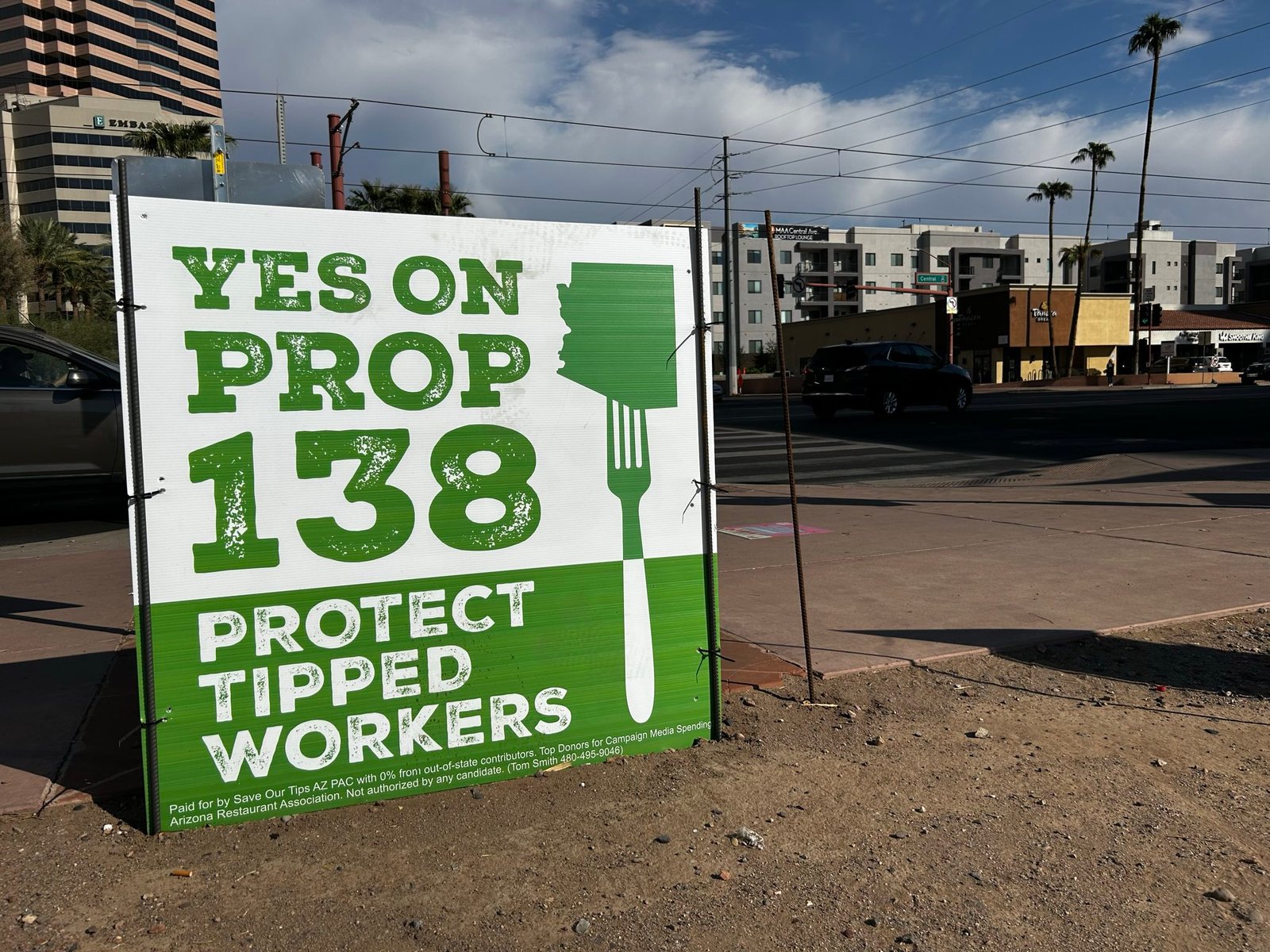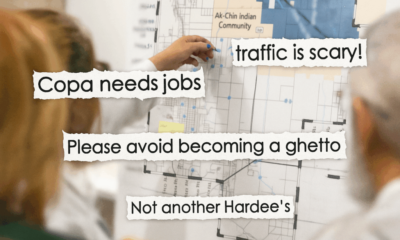2024 election
Voters Resoundingly Defeat Restaurant-Backed Plan to Slash Tipped Workers’ Wages

In a significant electoral decision, Arizona voters overwhelmingly rejected Proposition 138, a measure that sought to amend the state constitution and allow employers to pay tipped workers 25% less than the minimum wage. With nearly half of the votes counted, the proposition faced a staggering defeat, garnering over 75% opposition.
Currently, Arizona law permits employers to pay tipped workers $3 below the minimum wage, which is set at $14.35. If Prop 138 were approved, businesses could pay as much as $3.58 less than the minimum wage in future years, as the wage is indexed to inflation and increases annually.
Steve Chucri, President and CEO of the Arizona Restaurant Association, expressed his disappointment in a statement following the election results. “Arizona voters have spoken, though these are not the results we wanted. I am proud of our efforts that saw the competing initiative knocked off the ballot,” he stated. Chucri affirmed the Association’s commitment to opposing any future legislative attempts that could negatively impact the restaurant industry and its workforce.
Proposition 138 was introduced in response to an earlier initiative backed by labor groups that aimed to significantly increase the minimum wage and eliminate special provisions for tipped workers. However, that labor-backed initiative was removed from the ballot after restaurant owners successfully contested its signatures.
Despite its potential to reduce wages for tipped employees, the Arizona Restaurant Association labeled the measure as the “Tipped Workers Protection Act.” This title raised eyebrows, given the Association’s campaign was supported by conservative groups employing tactics reminiscent of those used in other states facing minimum wage increases.
Proponents of Proposition 138 cited Washington, D.C., as a cautionary example of minimum wage hikes. In 2022, D.C. enacted legislation guaranteeing that tipped workers receive the minimum wage, inciting a robust campaign against the change. This narrative followed a similar pattern of astroturfing seen in Arizona, where campaigns were presented as grassroots efforts but were orchestrated by organized interests.
The local campaign also adopted the term “Save Our Tips,” echoing a strategy used in D.C. tactics. The Arizona Republic featured an op-ed by a local server supporting Prop 138, who had connections to the campaign’s efforts. It was revealed that she had participated in a committee meeting wearing a “Save Our Tips” shirt and had actively promoted the measure in official publicity materials financed by Save Our Tips AZ. This server worked for a restaurant tied to a company donating to the Arizona Restaurant Association.


















